
Refine Your Search
...
Explore Financial Academy
About the Academy
Discover our Rich, 60-Year Journey
Jadarat
A Comprehensive System for Skill and Knowledge Development
Governance
Meet our Inspiring Leadership
Success Stories
Check out our Clients’ Reviews and Testimonials
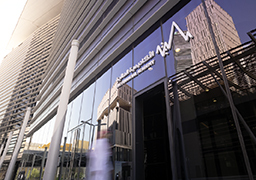

...

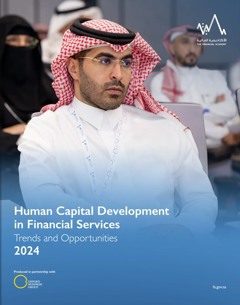
09 September, 2025
sdsdsd
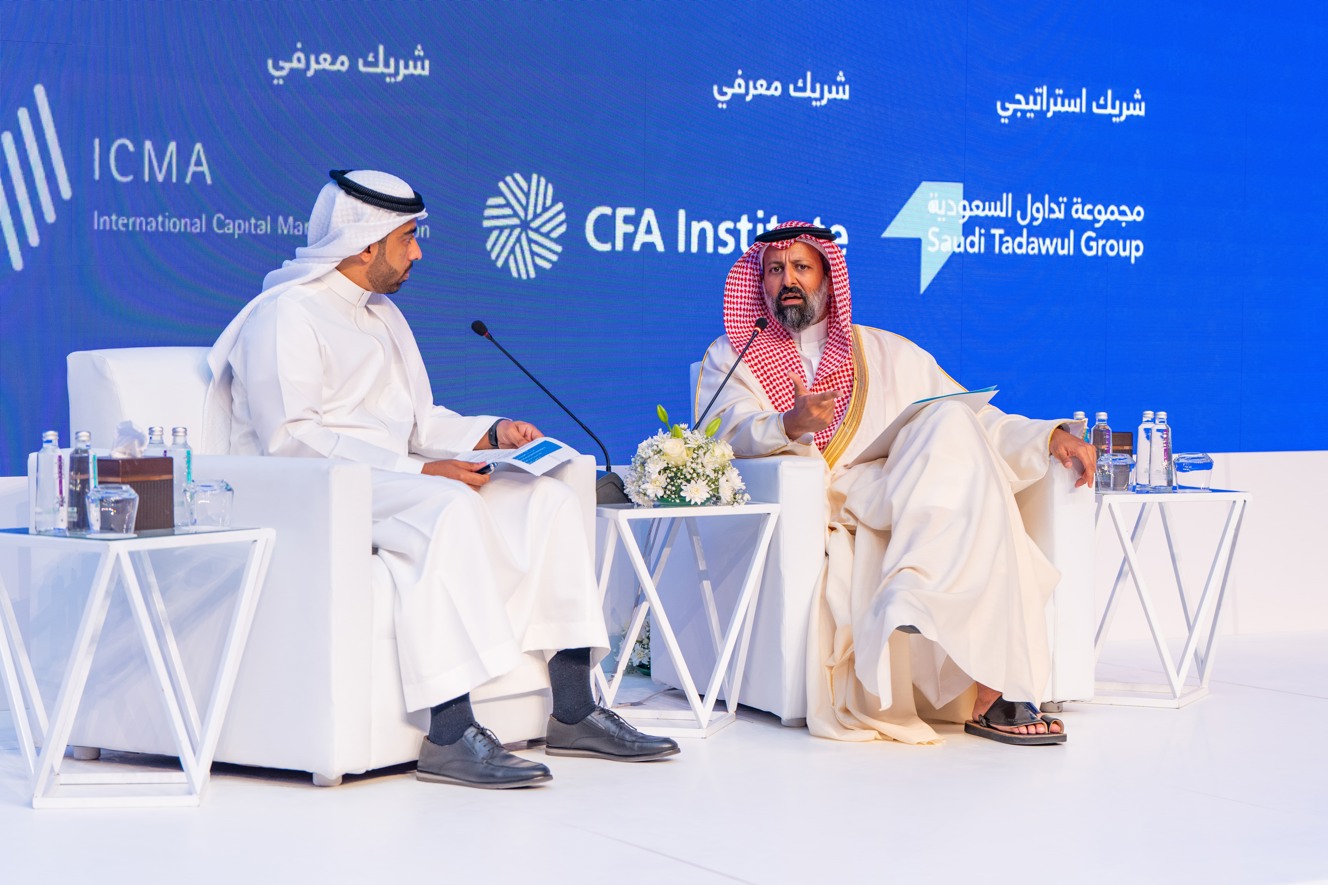
08 September, 2024
The Debt Market and Derivatives Forum (DMDF) 2024 has wrapped up, as its panel discussions and workshops, led by finance local and regional experts and professionals, delivered multiple outcomes. The conclusions mostly focused on developing the Kingdom’s capital markets and spurring more foreign investments into Saudi market, which aims to attain a high rank on world’s leading indices. The Forum, organized yesterday in Riyadh by the Financial Academy (FA) in partnership with Saudi Tadawul Group, featured numerous technical workshops on debt market and derivatives that were conducted by industry experts, professionals and CEOs. Deepening Market Liquidity: Building Resilient Bond Markets, a workshop delivered by Andy Hill, Managing Director of International Capital Market Association (ICMA), was particularly valuable. In a similar vein, Abdullelah Alqahtani, Domestic Debt and Structured Product Listing Team Leader at Saudi Tadawul, led a workshop on Debt Instruments and Their Effective Role in Corporate Finance that also addressed benefits and risks associated by debt instruments, and reviewed practical cases of issuing debt instruments in the Saudi market. Likewise, Erik Bertrand, CME Group, gave an overview on traded derivatives (fundamentals, requirements and benefits), explaining how to utilize these tools, and the potential benefits of using them in investment and hedging strategies. Finally, Rob Langrick, Chief Product Advocate, CFA Institute, conducted a workshop on debt markets, derivatives, and the role of the CFA Program. He highlighted key concepts and practical applications in debt markets and derivatives. Langrick also pointed out how professionals can leverage the CFA program to enhance their knowledge and skills. The DMDF, which attracted local and regional stakeholders, was held under the theme of “Unlocking Growth Opportunities” and covered significant finance topics such as Inside KSA’s Debt Capital Market, Derivatives Market Development in the Middle East, and Debt Capital Market Development: Local and Global Trends. Thanks to the Forum’s panel sessions, participants managed to explore promising opportunities in bond and sukuk market, key emerging potentials for stimulating growth and new insights into futures markets, which would more effectively enhance decision-making and risk management in local and regional finance industry in the future. The speakers recognized the boom experienced by the Kingdom of Saudi Arabia’s debt and derivatives market thanks to developing multiple vital roles that helped diversify finance resources and boost liquidity, which will pick up local and regional capital markets’ appetite to finance of huge projects, including those of infrastructure and energy. In addition, using derivatives as tools for risk management will witness an expansion, futures and options will have larger role in Saudi markets, and foreign investment inflows will further increase because of the improved regulatory environment and the global investors’ growing confidence. The Financial Academy, through the Forum, worked with different partners to raise awareness and exchange expertise on various issues such as the new financial instruments, risk management, promoting transparency in markets, and strengthening the Kingdom’s status as a leading regional and global investment destination. In doing so, the FA cooperated with respected local and international entities like Saudi Tadawul Group, Chicago Mercantile Exchange (CME), and Chartered Financial Analyst (CFA) Institute. The academy seeks to develop and support national talents by offering training programs and professional certificates that cope with the emerging needs of finance industry.

10 September, 2024
The Financial Academy (FA) has revealed the date for the third edition of its annual forum. According to the leading financial education and training institution, the Financial Academy Forum 2024 (FAF 2024) will be happening on October 9th, under the patronage of H.E. Mr. Mohammed bin Abdullah Elkuwaiz, Chairman of the Capital Market Authority (CMA) and Chairman of the Board of Trustees of the Financial Academy. The event is inspired by the FA’s strategies and initiatives aimed at enabling the Saudi financial sector to develop, thrive and prosper. Held under the theme “Sustainable Talent Growth,” the Forum covers numerous key topics relevant to its message of “Fostering Institutional Excellence Through Training and Development (T&D) Best Practices in Modern Era”. Thus, the panel discussions address issues such as Leadership in the Age of Technology and Innovation; Thriving through Rapid Changes: Building a Culture of Continuous Learning; AI as a Tool for Improving Employee Experience and Boosting Productivity in Modern Workplaces; and the Role of T&D and Talent Development in Navigating Sustainability. The FAF 2024, due to take place at King Abdullah Financial District (KAFD) in Riyadh, aims to empower leaders to leverage technology and drive innovation, integrate continuous learning into employee’s career journey, enhance training effectiveness using AI-driven evaluations and continuous improvement, and foster sustainability through T&D. Serving as an annual, vibrant platform for finance industry decision makers, the Forum attracts senior government officials, heads of authorities and institutions, CEOs, as well as distinguished researchers, academics, experts and professionals in finance and investment areas. They gather to explore new methods and techniques for improving the financial sector human capital’s capabilities and skills in alignment with the sector’s future needs. Learn more about the FAF 2024 agenda and register for the event via the Forum website: Here
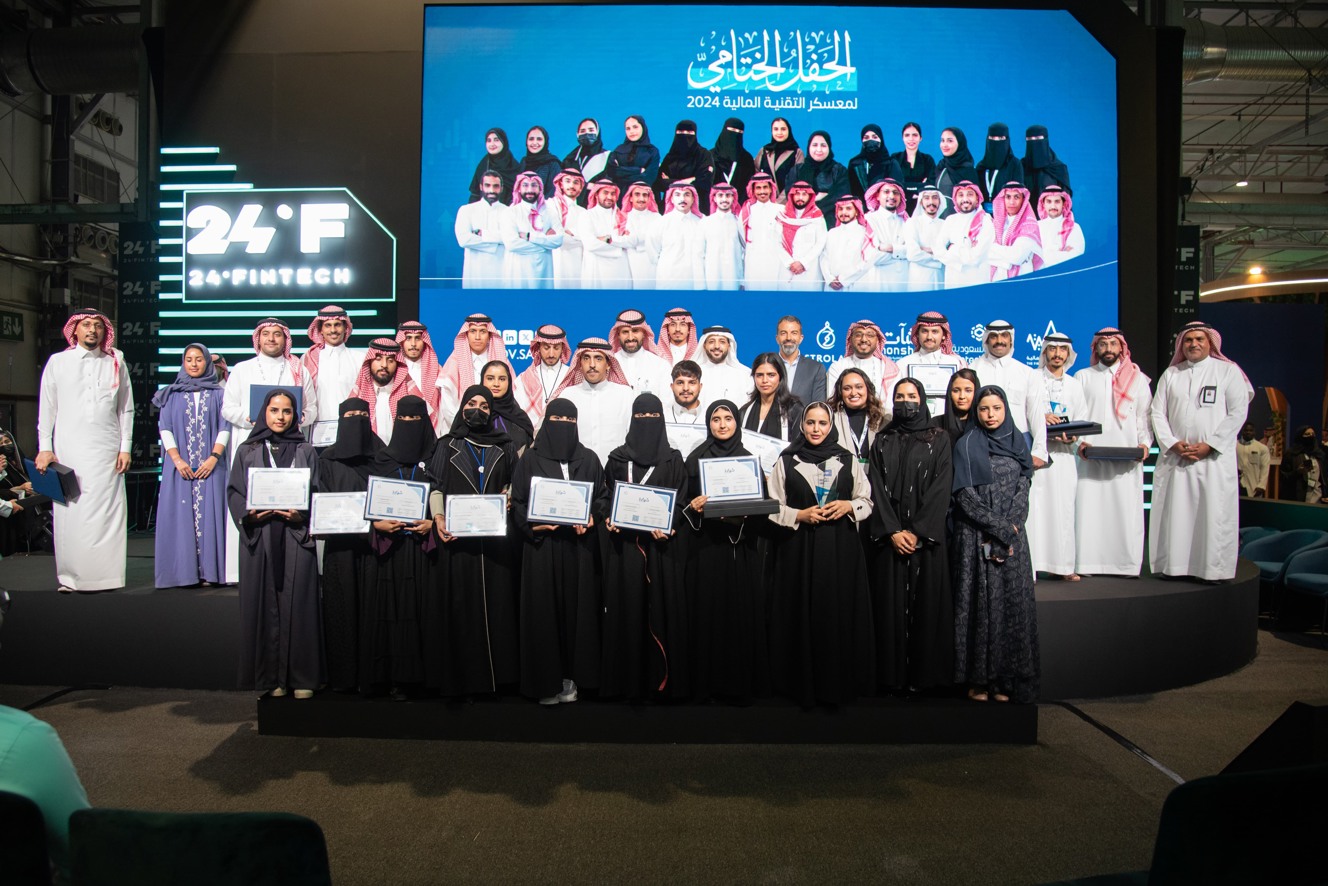
03 September, 2024
The Financial Academy (FA) has celebrated the graduation of 31 Saudi innovators, including young men and women, during the closing ceremony of the “Fintech Bootcamp 2024” in Riyadh. The camp was organized in cooperation with FintechSaudi and the Small and Medium Enterprises General Authority (monsha’at). It’s designed to qualify national professional cadres in the fintech industry, which is aligned with the Financial Sector Development Program (FSDP), one of Vision 2030 targets. Mr. Mana bin Mohammed AlKhamsan, CEO of the Financial Academy, commented that the six-week intensive bootcamp, throughout 150 hours of education, created an optimally motivating environment for preparing and developing the next generation of the Kingdom’s fintech pioneers. He explained that it presented the Saudi ambitious young people with the opportunity to explore the realms of data analysis, the fintech emerging technologies and the artificial intelligence (AI). The program, he noted, empowered the participants to develop projects and prototypes. “The Fintech Bootcamp is one of the key initiatives spearheaded by the FA in order to support finance and technology sectors and contribute to the advancement of the national economy. So, the Academy, through such activities, seeks to develop national talents in the field of financial technology by providing an ecosystem that is favorable for building innovations under supervision of a selection of professional fintech trainers, mentors and experts,” AlKhamsan said. He asserted that the FA will continue to commit to developing the capabilities of finance human capital by devoting its physical and human resources to this end, and launching effective initiatives that support the achievement of the goals of the Kingdom’s Vision 2030. “As we pursue our goal of making the Kingdom of Saudi Arabia a leading fintech hub, we strive to nurture and develop the national young talents with a view to enhancing the digital economy and fostering the cultures of innovation and entrepreneurship,” he concluded. The Financial Academy is an independent legal and administrative entity that is organizationally located under the Chairman of the Board of the Capital Market Authority. The Academy seeks to qualify the financial sector’s human resources by advancing the knowledge, capabilities, skills and culture of its staff, including senior managers and board members. The FA also develops and promotes best professional financial practices, targeting all segments of the financial sector such as banking, finance, insurance and capital market.
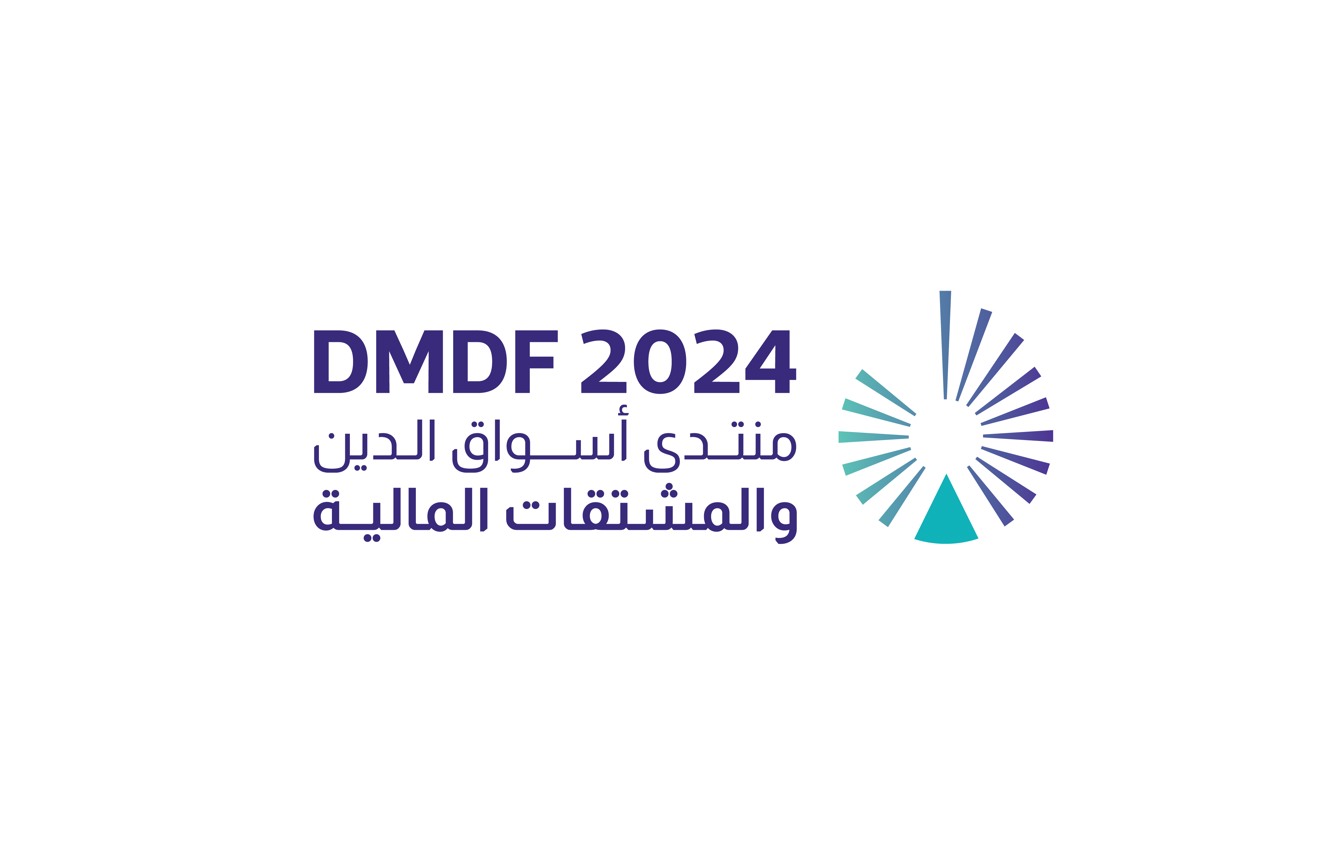
21 August, 2024
- The Financial Academy (FA) has announced that it will host in September the “Debt Markets and Derivatives Forum 2024” under the auspices of H.E. Mr. Mohammed Elkuwaiz, Chairman of the Capital Market Authority (CMA) and Chairman of the Board of Trustees of the Financial Academy. The event - inspired by the FA’s strategy and initiatives designed to enable the Saudi financial sector to develop, advance and prosper - will be attended by sector leaders, finance experts and securities professionals. Mr. Mana bin Mohammed AlKhamsan, the CEO of the Financial Academy, commented that the Forum is an outcome of the Academy’s strategy, which aims to build a diverse portfolio of innovative solutions that align with industry trends and enhance the employability of human capital. These solutions, he added, should upgrade capacities and internal tools to support the strategic direction, spread the culture of continuous learning and excellence and ensure financial sustainability. “The Forum will be held in Riyadh on Sunday, September 8, 2024, and will include a series of panel sessions and side workshops featuring financial sector leaders and regional and international industry experts. It will explore the latest economic developments as well as the shifts in local, regional and global investment strategies.” “The Forum will also serve as a platform for engaging with thought leaders and policymakers to exchange ideas and insights on shaping the future of capital markets. Additionally, the event provides an opportunity to connect with industry professionals from around the globe to build valuable relationships and collaborative opportunities,” said AlKhamsan. The “ Debt Markets and Derivatives Forum 2024” taking place under the theme of “Unlocking Growth Opportunities,” discusses several significant topics such as Inside KSA’s Debt Capital Market, Derivatives Market Development in the Middle East, and Debt Capital Market Development: Local and Global Trends. Moreover, a number of workshops focusing on debt markets and derivatives topics will be held on the sidelines of the forum. One of these workshops will provide a deep insight into the concept of debt as a corporate financing tool, and how it is issued and used to attract capital. Another one will give full information on traded derivatives, including futures & options in regulated markets, in addition to shedding light on capital debt markets and derivatives. A third workshop will be centered on the role of Certified Financial Analyst (CFA) programs in qualifying financial analysis professionals. For those interested to attend the workshops, please click on this link for registration Debt Markets and Derivatives Forum 2024 (fa.gov.sa) .
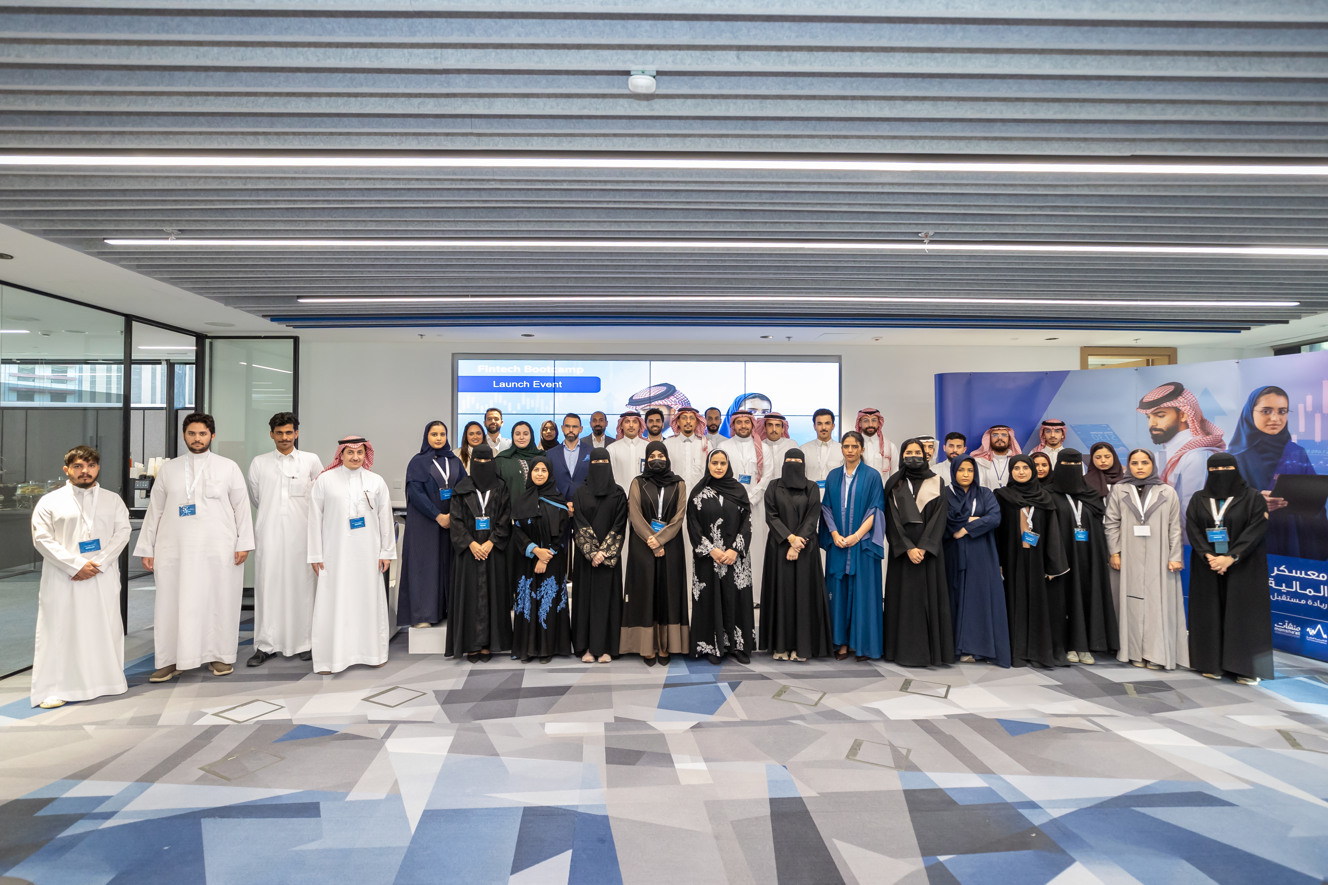
03 July, 2024
The Financial Academy (FA) has launched the “Fintech Bootcamp 2024” in collaboration with FintechSaudi and the Small and Medium Enterprises General Authority (monsha’at). A total of 30 Saudi innovators, including young men and women, are participating in the unique financial technology experience. The camp is intended to contribute to building national specialized cadres in the field, leading eventually to making the Kingdom a fintech hub, in alignment with Vision 2030’s Financial Sector Development Program (FSDP). The bootcamp provides a motivating environment where the next generation of the Kingdom’s fintech pioneers can be qualified. It offers the Saudi youth an opportunity to immerse themselves in a six-week training to explore the realms of data analysis and emerging technologies in fintech and artificial intelligence (AI). The boocamp will enable the participants to develop projects and prototypes as well. “The bootcamp is one of the key initiatives spearheaded by the Financial Academy to support the financial and technology sectors and contribute to the advancement of the national economy. So, the FA, through such activities, develops national talents in the field of financial technology by providing an ecosystem that is favorable for building innovations under supervision of a selection of professional trainers, mentors and experts,” remarked Mr. Mana bin Mohammad AlKhamsan, CEO of the Financial Academy. He explained that the camp covers a wide range of topics such as design thinking, data analysis, emerging financial technology, artificial intelligence (AI), agile management, data analytics and insight-driven decision making, data visualization, storytelling using financial technology and emerging technologies, the AI, the AI-supported growth, automation optimization, leading the digital transformation as well as pitching and presentation skills. “The bootcamp will progress through various stages, including selection, onboarding, team formation, the training bootcamp, the hackathon, until it culminates on the Demo Day,” AlKhamsan added. The Financial Academy is an independent legal and administrative entity that is organizationally located under the Chairman of the Board of the Capital Market Authority. The Academy seeks to qualify the financial sector’s human resources by advancing the knowledge, capabilities, skills and culture of its staff, including senior managers and board members. The FA also develops and promotes best professional financial practices, targeting all segments of the financial sector such as banking, finance, insurance and capital market.
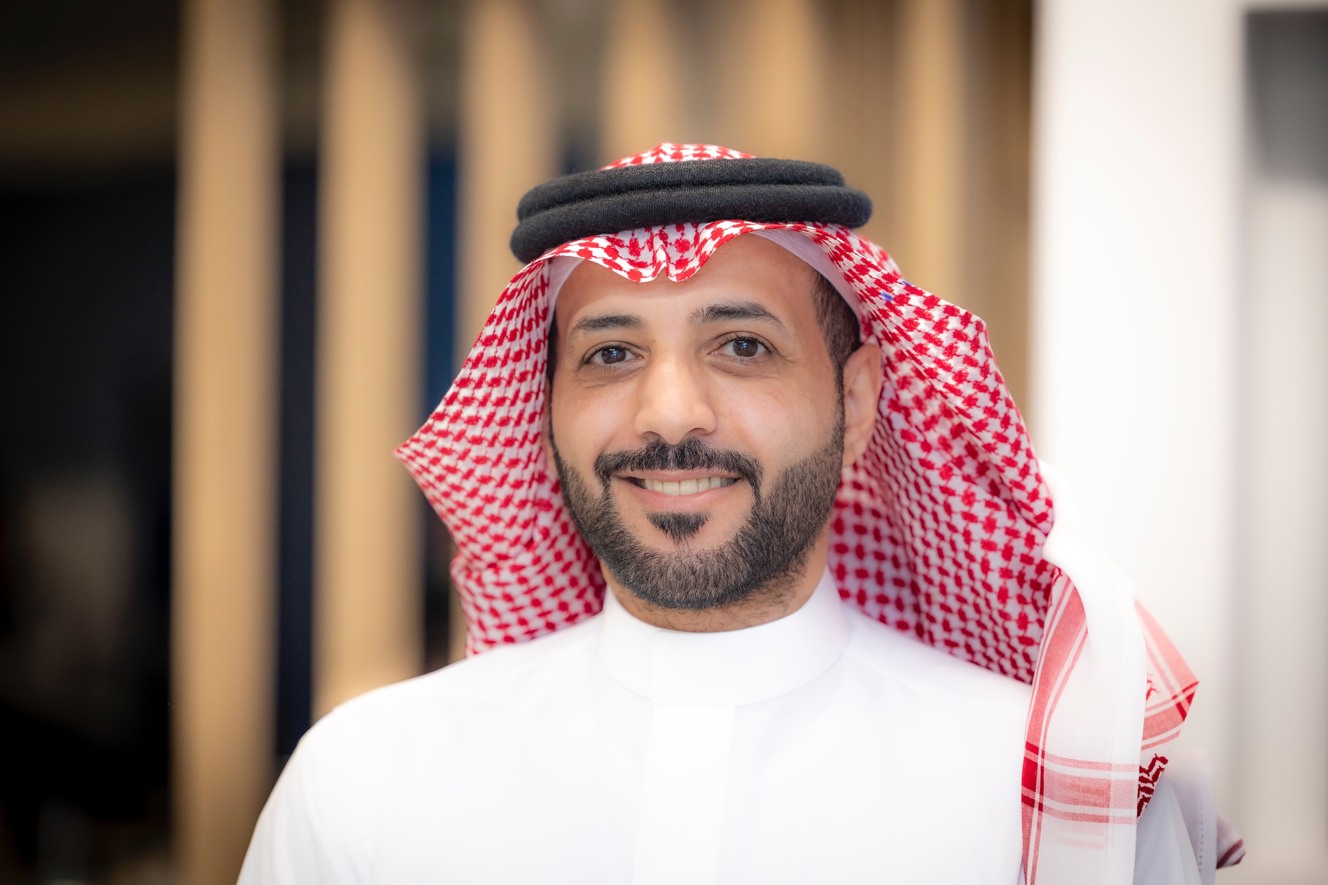
09 June, 2024
Mr. Mana bin Mohamad Al-Khamsan, CEO of the Financial Academy (FA), said that the finance training market is forecast to hit SR1 billion by the year 2026, while target audience for professional training and certificates is set to grow to 132,000, citing a relevant study that was conducted in 2023.Al-Khamsan made the statements during an interview with Harvard Business Review magazine. "The skills required by labor market are dramatically and rapidly changing, especially when it comes to the financial sector, which necessitates qualifying more human capital in order to close the skill gap," he noted.The World Economic Forum estimated that AI will replace 85 million jobs across the globe by 2025, stated Al-Khamsan, indicating that half of current employees need to develop new skills. Hence, he urged organizations to take serious and practical steps to invest in their employees and redesign jobs to be more adaptable to change.Highlighting the Financial Academy's role in supporting KSA's financial sector's directions and developing the capabilities of human cadres, Al-Khamsan said that the FA efforts are driven by an ambitious strategy that is based on four main pillars: The Academy's subject-matter expertise, analyzing the needs within industry, keeping up with the renewed strategies of FA's stakeholder partners, and analyzing the emerging trends in human capital development area.The CEO further explained that the Academy's strategy aims to build a diverse portfolio of training programs and professional certificates that aligns with the financial sector's targets."It is designed to enhance human capital readiness for job roles, upgrade the organizations' internal capabilities and tools to support their strategic direction, promote the culture of excellence and continuous learning, and guarantee financial sustainability.""Additionally, the FA is committed to advancing cooperation with its strategic partners in Capital Market Authority (CMA), Saudi Central Bank (SAMA), Insurance Authority (IA), as well as its clients and partners in the financial sectors, with a view to strengthening ties with stakeholders, understanding their needs and bringing up innovative solutions that would help improve human competencies and talents."Al-Khamsan added that the FA results for the year 2023 showed significant growth of indices, including those of training programs, beneficiaries and certificates, with some surging 200 percent."The number of training programs grew over 1700; trainees exceeded 37,000; examinees surpassed 31,000; while professional certificates reached 43. These figures are just the initial outcome of a new vision that the FA started to adopt at the beginning of the current year (2024). This vision aspires to make our Academy the number-one option for all finance industry stakeholders seeking to improve and advance the capabilities of their human capital."Speaking on the Financial Academy's new initiatives aiming to boost the development of financial sector's human resources, the CEO disclosed that the FA launched specialized centers covering all industry subsectors. "Each sector is tasked with analyzing a specific sector's professional needs and pitching the proper training solutions accordingly. Two centers for online and leader and board-member training were initiated as well."Al-Khamsan concluded that the Academy will continue to offer specialized programs and international professional certificates at subsidized costs and expand the scope of its support by providing the financial sector with expert studies and reports that focus on the development of human capabilities.
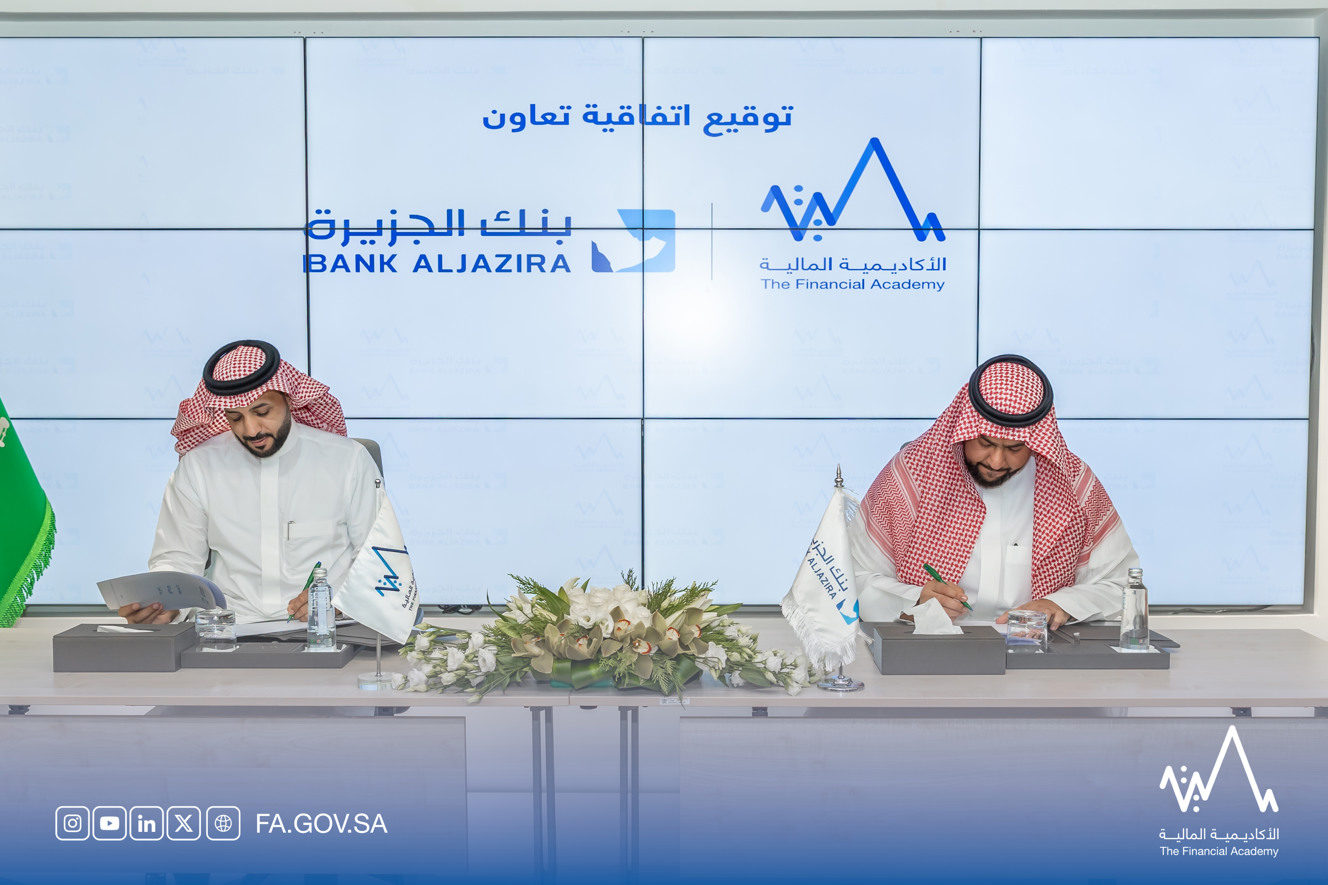
19 May, 2024
The Financial Academy (FA) and Bank AlJazira inked a cooperation agreement to enhance joint cooperation on different areas. The deal focuses on developing human capital capabilities, implementing training programs and workshops, conducting research studies, and collaborating to execute initiatives that help achieve the goals of the Financial Sector Development Program (FSDP) – a key components of the Kingdom's Vision 2030.The agreement was signed by Mr. Mana bin Mohammad AlKhamsan, CEO of the FA, and Mr. Faisal bin Mashour Al-Mansour, Head of the Human Capital and Corporate Support Group at Bank AlJazira.Mr. AlKhamsan commented that the partnership is inspired by the Academy's strategy aiming to develop and advance the capabilities of the financial sector employees."As per the agreement, the FA will deliver workshops and training programs tailored to Bank AlJazira's staff, in addition to seminars, workshops and open sessions for the public. Moreover, the Academy will promote the employees' technical competencies related to the bank's areas of operation, and provide reports and reference research to be used in training workshops and programs," he explained.The Financial Academy is an independent legal and administrative entity that is organizationally located under the Chairman of the Board of the Capital Market Authority. The Academy seeks to qualify the financial sector’s human resources by advancing the knowledge, capabilities, skills and culture of its staff, including senior managers and board members. The FA also develops and promotes best professional financial practices, targeting all segments of the financial sector such as banking,finance, insurance and capital market
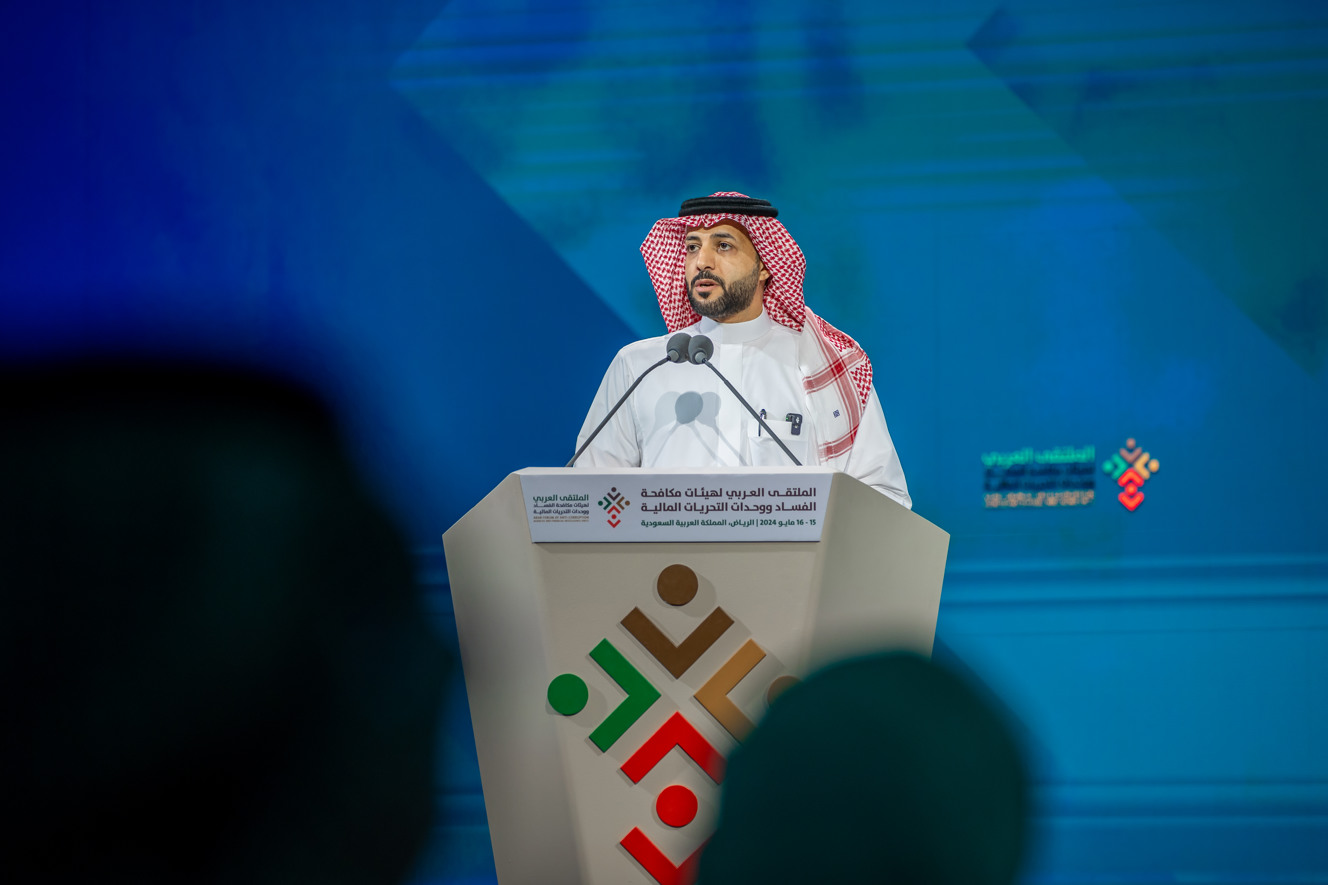
17 May, 2024
Mr. Mana AlKhamsan, CEO of the Financial Academy (FA), participated in the Arab Forum of Anti-Corruption Agencies and Financial Intelligence Units, giving a keynote address. The event was held in Riyadh under auspices of His Royal Highness Prince Mohammad bin Salman bin Abdulaziz Al-Saud, Crown Prince and Prime Minister of the Kingdom of Saudi Arabia.In a speech entitled "Improving the Financial Sector Staff's Capabilities to Combat Financial Crimes and Corruption," AlKhamsan stated that the launch of KSA's Vision 2030 has marked the beginning of the Kingdom's real rise to the ranks of global advanced nations, since it included ambitious plans as well as economic, social and development programs."Among these essential components is the Financial Sector Development Program (FSDP) which focuses on strengthening the capacities of the financial sector's human resources, culminating in launching the Financial Academy in 2020 as a powerhouse for developing financial knowledge, skills and expertise," noted AlKhamsan."In doing so, the FA provides a wide range of innovative and effective activities, solutions and technologies that would boost the professional development of the financial sector's employees and support the collective efforts aiming to achieve human capital sustainable development."He explained that the Academy, being a leading institution specializing in professional financial training, is fully aware of the dangers of financial crimes and their negative effects on societies and economies."Since the FA believes in the significance of its role with regard to qualifying human resources in the areas of Compliance, Financial Crimes Prevention (FCP), Anti-Money Laundering (AML), and Countering the Financing of Terrorism (CFT), it designed a package of specialized training programs and professional certificates, and organized several gatherings and awareness seminars that center on these issues," he added.AlKhamsan revealed that a total of 545 programs were carried out, benefiting about 9,000 trainees working in sectors of banking, financing, insurance and securities, in addition to governmental stakeholders. "Recognizing the importance of specialized professional certificates in advancing the competencies of human resources in different sectors, the FA provided a variety of the most prestigious certifications in partnership with internationally-renowned associations and institutions, most prominently the Association of Certified Anti-Money Laundering Specialists (ACAMS) and the International Compliance Association (ICA). More than 2,500 male and female practitioners obtained these certificates until now."The CEO concluded that the Financial Academy is committed, in compliance with its strategy, to continuously delivering the best training programs and professional certificates in the fields of combating financial crimes, money laundering and financing terrorism through strengthening its global partnerships in these areas. He finally wished success for the forum.
